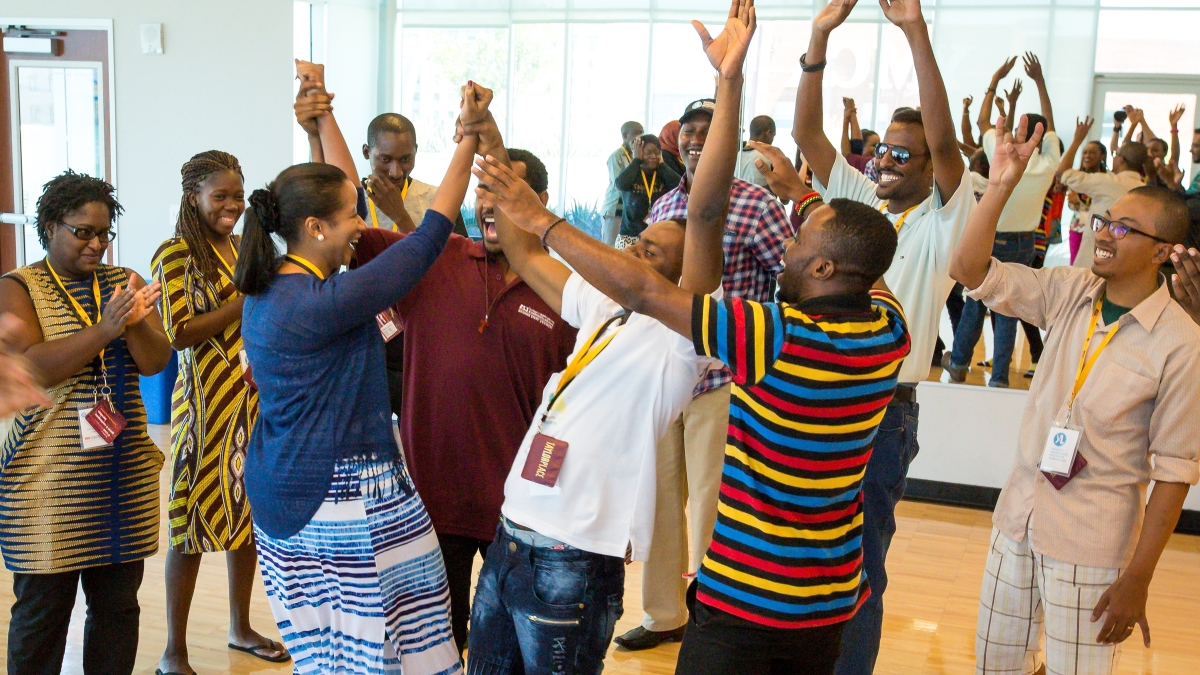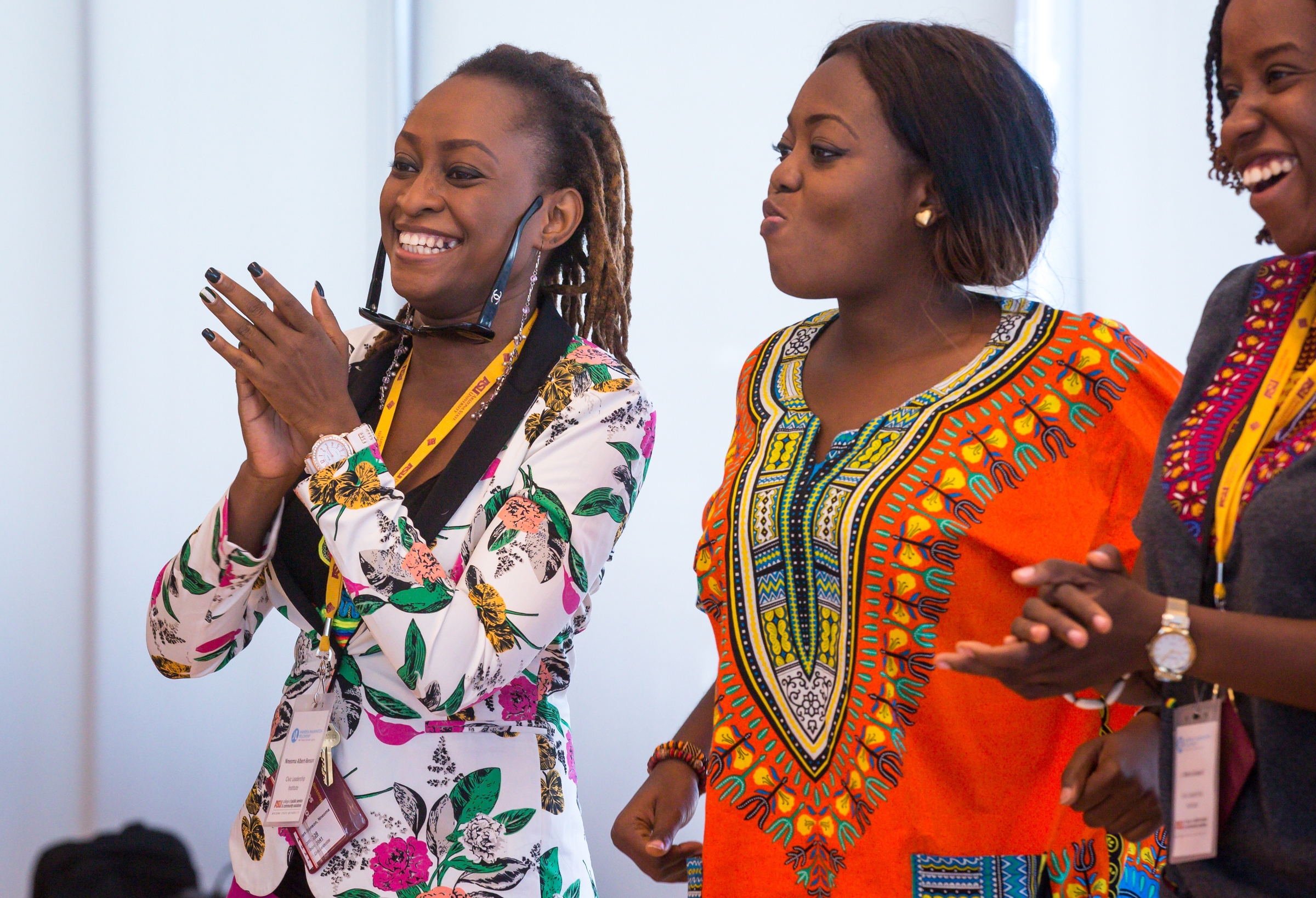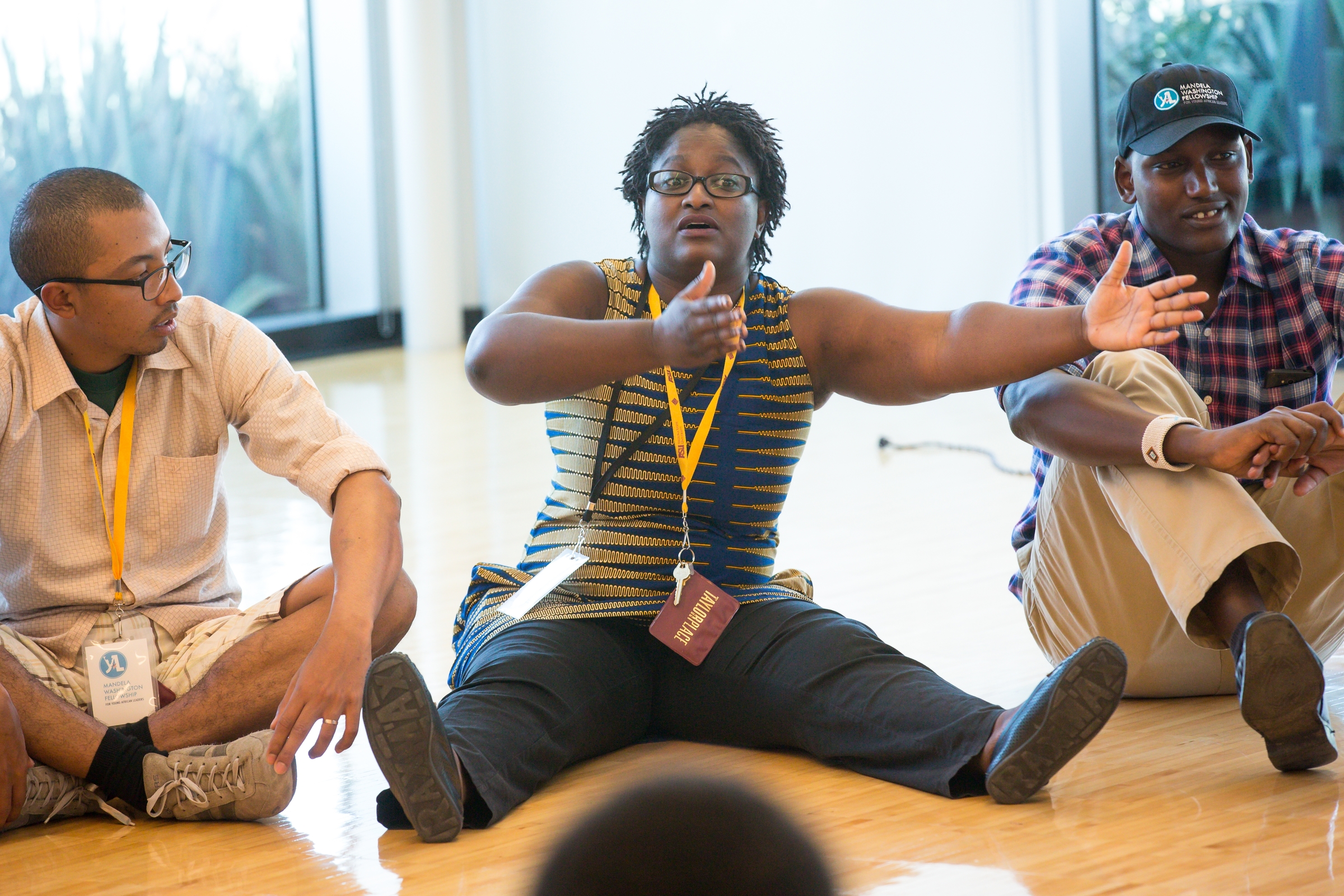Fifty young African leaders who are visiting Arizona State University will take home memories of the scorching summer heat, but they also will carry back new ways to improve their communities.
The group is part of the Mandela Washington Fellowship for Young African Leaders, and they are in the United States for six weeks, including academic work at ASU, community service and a meeting with President Barack Obama in Washington, D.C. This is the third year of the fellowship programThe costs are paid by the U.S. Department of State., begun in 2014 as the main part of Obama’s Young African Leaders Initiative.
“I have never been to so much heat ever in my life, but I’ve also never been to a good university that is very well organized,” said Borso Tall, who is a Mandela fellow from Senegal.
Tall is one of 1,000 Mandela fellows from Sub-Saharan Africa who were selectedThere were more than 50,000 applicants. to study at 36 universities in the United States this summer in one of three tracks: civic leadership, public management, and business and entrepreneurship. ASU is one of only four universities with two Mandela cohorts — 25 in the civic-leadership track and 25 in public management.
The fellows are between the ages of 25 and 35 and are selected based on their accomplishments in their home countries. Many own their own businesses, lead non-profit organizations or teach. While here, each scholar develops a project that he or she can implement in his or her communitiesBack home, they will get continued support, such as mentoring and training, from U.S. embassies, Regional Leadership Centers, the Young African Leaders Initiative Network and other partners..
They have 100 hours of academic instruction and spend five days in community service at agencies around the state, according to Dana Newell, assistant dean of the College of Public Service and Community Solutions, which hosts the Mandela program at ASU.
“One of the things that makes ASU unique is that everyone on the faculty and community-partner side is volunteering for this,” she said. “That’s very unique in a university structure, and it shows ASU’s level of commitment to community engagement and how much we care about these global initiatives.”
Newell said that the community-service piece is huge.
“Last summer, our fellows went to the Community Food Bank of Tucson and packed enough food to feed over 6,000 families.”
Nneoma Albert-Benson (left) and Chinenye Ezeakor, both of Nigeria, laugh at the antics of one of the other Mandela Washington fellows as they start team-building exercises at the downtown Sun Devil Fitness Complex on Wednesday. Photo by Charlie Leight/ASU Now
This year’s projects include work with Habitat for Humanity in Flagstaff and Ben’s Bells and Roosevelt Row Community Development Corp. in Phoenix.
But there also is time for fun.
“I cannot wait to go to the Grand Canyon,” Tall said. “I have seen it in postcards and movies, but I never thought I would see it.”
'Everyone has a role to play'
In their first week together, the fellows gathered at the Sun Devil Fitness Complex on ASU’s Downtown Phoenix campus for team-building activities.
The young people hopped, squirmed and slid across the shiny floor, clasping hands as they competed to see which team could reach the finish line first while still touching each other.
After the challenge, the 25 participants sat in a circle and dissected the results of their teamwork.
“Leaders aren't always in the front,” Tall said. “Leaders can be in the front, in the middle or in the back. Everyone has a role to play in the process.”
Darlington Muyambwa said that no one should sit back and not participate.
“We have to have the hunger of wanting to be part of the conversation. We need the willingness and eagerness to engage,” said Muyambwa, who wants to establish a center for youth employment in his home country of Zimbabwe.
Concerned about human rights
The projects are the core of the fellows’ work. All of the participants have a vision for a way to help their communities.
Borso Tall, of Senegal, talks about the concept of working together during team-building exercises at the Sun Devil Fitness Complex on the Downtown Phoenix campus on Wednesday. Photo by Charlie Leight/ASU Now
Andry Rakotomanana is an English teacher at a school in Madagascar with a bachelor’s degree in computer science.
“I have noticed that students are very motivated for Facebook, so I would like to create a social network for education,” he said.
The digital platform would connect high school students, college students, teachers and professionals to provide career counseling.
“Then everyone can advise high school students for their futures,” Rakotomanana said.
Borso Tall’s project combines the three hatsTall also is the executive assistant of the Amnesty International Regional Office for West and Central Africa, a PhD candidate in American studies at Cheikh Anta Diop University, and the co-founder of the Senegalese American Studies Association. she wears in Senegal — American studies and human-rights teacher, independent social worker and university lecturer.
“My goal as a future professor at the university would be to have an officially recognized human-rights program in my department,” she said.
She was impressed with the School of Social Work in the College of Public Service and Community Solutions at ASU.
“It was awesome to see so many people in social work and so many people concerned about human rights,” she said.
“In my country, social work is not in the university — it is a separate training school. All of this collaboration will give me the support I need to add that program to my university.”
Top photo: The Mandela Washington fellows celebrate after team-building exercises at the Sun Devil Fitness Complex on the Downtown Phoenix campus at ASU. Photo by Charlie Leight/ASU Now
More Local, national and global affairs

Arizona PBS is now free to stream for Prime Video viewers in the US
Arizona PBS is now available for streaming on Amazon Prime Video. A new partnership between PBS and Amazon brings the station’s primary, high-definition broadcast channel, along with the 24/7 PBS…

First-ever Taiwan Symposium at Thunderbird celebrates business, cultural connections
The investment by TSMC and other Taiwanese corporations in Arizona will reap dividends not only in thousands of new jobs but also in strengthened cultural connections and new methods of…

Study shows that trust drives successful market economies — but not in the way you may think
From fueling our cars to fulfilling daily coffee habits, the average U.S. cardholder makes 251 credit card transactions per year, according to Capital One.Each of these transactions are built…




